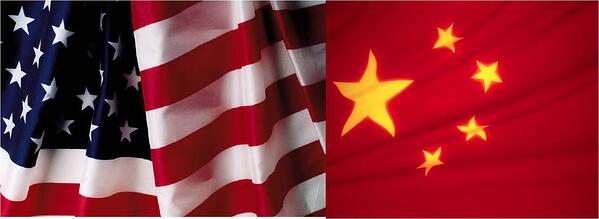
With the imminent presidential economic debates, there is no way that US trade relations with international import/export powerhouse China would not become a big topic. Presidential candidate Mitt Romney is pulling no punches with his statements on the subject. Romney called China a “cheater” and pledged to make China “play fair”.
With our presidential election coming up in November, presidential candidate Mitt Romney and his running mate Paul Ryan have been stirring up some controversy about international trade, accusing the Chinese government of manipulating their currency in order to give China an edge in international trade to the disadvantage of US corporations and consumers.
The accusation was made from the platform by Romney and Ryan when the two were on the campaign trail last Saturday, October 13th in Ohio. Romney went on to criticize President Obama for failing to properly address the issue. If elected, Romney pledged he would “get trade to be fair” between China and the US.
Obama spokesperson Danny Kanner countered Romney’s accusation of Obama being soft on China with some accusations of his own. When it comes to currency and trade policies, Kanner asserted that Romney “talks tough” but, “as a corporate buyout specialist, he [Romney] invested in companies that were pioneers in outsourcing to low-wage countries like China. That’s not a candidate who would be tough on China as president.”
Rewind four years and you find a presidential candidate named Barack Obama making similar statements to Romney’s. In fact, it was even in October of 2008, that now President Obama said China’s current trade surplus is “directly related to its manipulation of its currency’s value.” He promised to “beef up US enforcement efforts against unfair trade practices.”[1]
As president, Obama has been much more diplomatic with his approach to China. However, he has filed the occasional case against China with the World Trade Organization (WTO), including one just in September of 2012 alleging China unfairly subsidizes. Romney calls that case “too little, too late” and “a last-minute political attempt to act on an issue that has long hurt the American economy.”
It’s hard to imagine President Obama’s timing on this WTO action so close to the election was by accident. As the election continues to heat up on the topic of China and international trade, it will probably be a chip that President Obama can play to point out he has not forgotten his promise to “beef up US enforcement efforts against unfair trade practices.”
While our candidates were swapping accusations, officials at the Chinese Central Bank defended themselves and re-asserted that it is mainly the market (and not the Chinese government) which determines the value of their currency. [2] This announcement came on October 14th following Romney’s statements.
Mr. Zhou Xiaochuan, governor of the People’s Bank of China said that “China’s central bank refrained from intervening in the market in the last year”, and noted that the “exchange rate stayed around 6.3 renminbis per dollar.” He continued, “The rate, the spot rate and future rate, determined by the market supply and demand, basically are very close to the equilibrium rate”.[3]
According to a recent New York Times article, there’s nothing new about US government officials voicing suspicions that China has artificially kept the renminbi undervalued in order to make exports “relatively less expensive in overseas markets.”
Even if China had engaged in this sort of manipulation in the past, some analysts wonder if it really would have a hugely negative affect on the international import/export business? While many have decried the apparent advantage any currency manipulation might give to China, some recent studies suggest otherwise.
One analyst says that the effect would “depend critically on how traded goods and services are priced” and warns that “the real effects of China’s policies are potentially quite complex, are not readily translated into trade-policy equivalents”. [4]
Another publication states that the effects of alleged Chinese currency manipulation are exaggerated, and that “in the long run currency devaluations will not alter export volumes.” [5]
These issues certainly are more complex than politicians usually make it seem during election years, but if you’re an international shipper importing or exporting goods from and to China, these issues affect your business.
What are your thoughts on the international trade situation, accusations of currency manipulation against China, and the role the government should take in these issues. Comment below.
